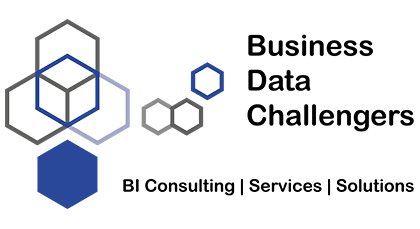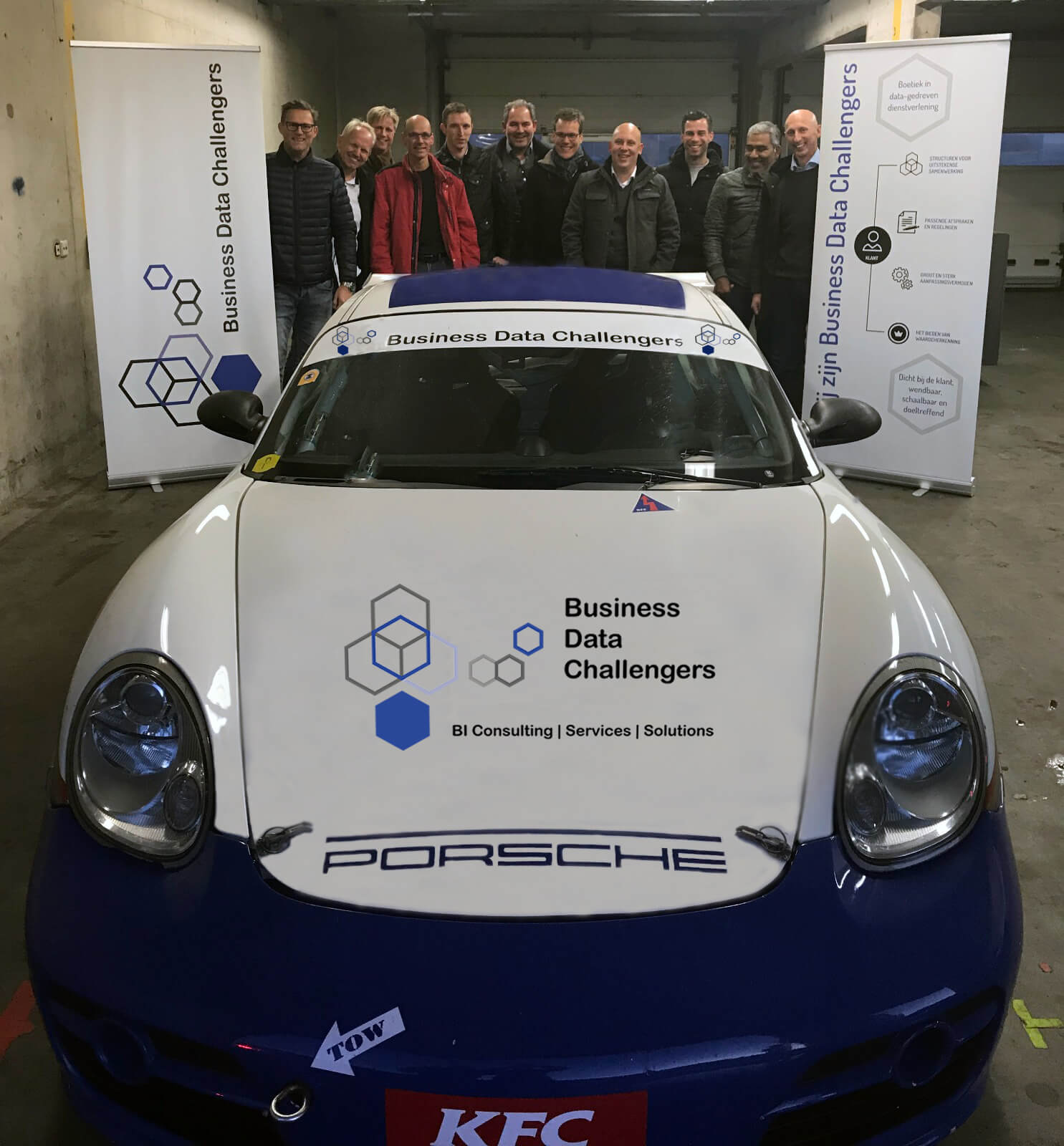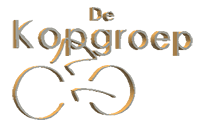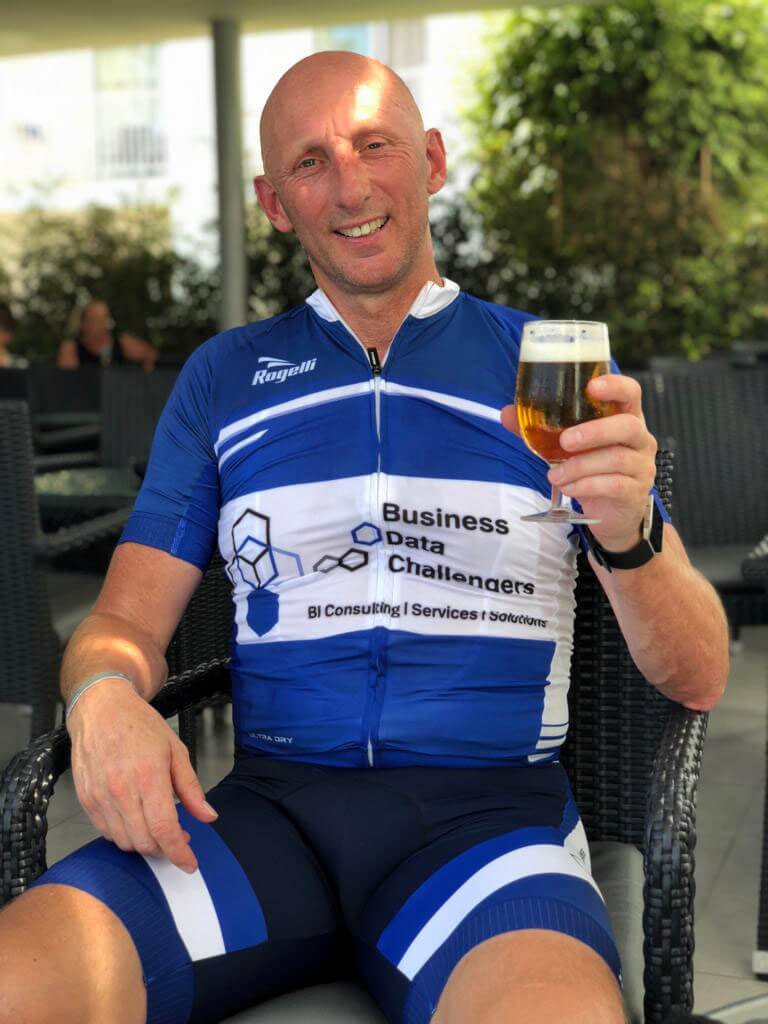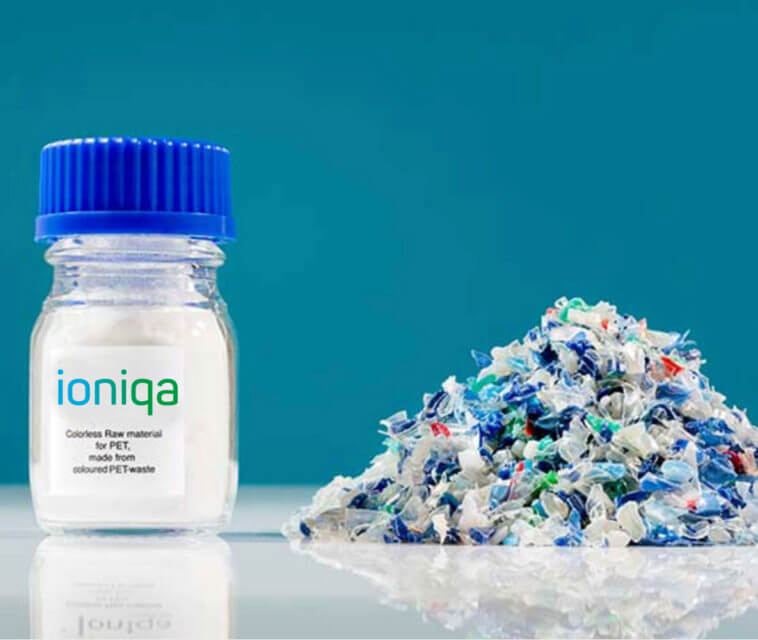Maatschappelijke betrokkenheid
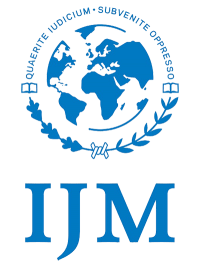
International Justice Mission
Een belangrijk uitgangspunt in de bedrijfsvoering van Business Data Challengers is het terugdringen van de reistijd en CO2 uitstoot. Daarnaast vinden we een culture fit met onze klanten erg belangrijk. Precies daarom bedient Business Data Challengers haar klanten vanuit autonome, regionale teams. Vanuit dit perspectief vullen we dan ook onze maatschappelijke betrokkenheid in. We voelen ons betrokken bij organisaties die vanuit de juiste overtuiging kiezen om problemen regionaal en met lokale vertegenwoordigers aan te pakken.
Hoewel we niet wereldwijd opereren, kiezen we ervoor om de International Justice Mission(IJM) te ondersteunen. Een non-profit organization die het principe hanteert om hedendaagse slavernij op te lossen vanuit regionale veldkantoren, in samenwerking met de lokale autoriteiten.
IJM is de grootste organisatie ter wereld in de strijd tegen slavernij. In landen als India, de Filipijnen, Ghana en Cambodja vecht IJM tegen gedwongen arbeid, mensenhandel voor de seksindustrie en misbruik van kinderen voor cyberseks. IJM zet zich in om:
- To free slaves
- To bring perpetrators to justice
- Restoring the lives of freed victims
- To structurally change societies
Met onze kennis en ervaring ondersteunt Business Data Challengers IJM bij het inzichtelijk maken van data. Dit levert IJM informatie op, die bijdraagt aan de ontwikkeling van activiteiten om meer leden en sponsors te werven.
Benieuwd of je ook kunt helpen? Ga dan naar de website van International Justice Mission
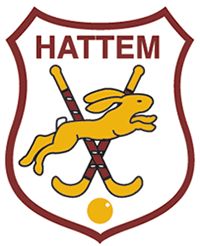
Hockey club Hattem
Oprichting:
In de zomervakantie van 1952 speelde een groep kinderen in de Hattemse bossen, ondertussen luisterend naar het wedstrijdverslag van de Olympische Spelen van Helsinki. Ze besloten hun eigen Spelen te organiseren. Er werd hooggesprongen, hardgelopen én gehockeyd met takken die ze vonden in het bos en een bal gemaakt van elastiekjes. De kinderen raakten zo enthousiast, dat ze besloten een hockeyclub op te richten. De oudste van zestien, Rudolf Suermondt, werd voorzitter en onder zijn leiding werden steeds meer leden geworven. En dus moest worden gezocht naar een plek om te trainen en wedstrijden te spelen. Dat werd een plek die bekend stond als de Hazenakker, omdat het er wemelde van de hazen en konijnen. Reden genoeg om een logo met een haas te ontwerpen.
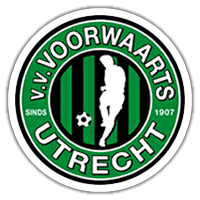
Voetbalvereniging Voorwaarts Utrecht
Clublied:
Komt Voorwaarts leden aangetreden,
Houdt hoog de groen zwarte vlag,
Als er een wedstrijd wordt gestreden,
En ons de overwinning wacht.
Komt mannen vooruit: op naar het veld,
Houdt de bal in het oog!
Zo houden wij de vlag van Voorwaarts hoog.
Als de scheidsrechter fluit om te beginnen,
Dan volgt een luid hoera!
Er gaat een wedstrijd zich ontspinnen,
En volgt de overwinning dra,
Komt mannen vooruit: op naar het veld,
Houdt de bal in het oog!
Zo houden wij de vlag van Voorwaarts hoog!
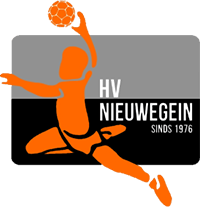
Handbalvereniging Nieuwegein
Oprichting:
Handbalvereniging Nieuwegein is opgericht op 26 september 1976. De vereniging is destijds opgericht door een aantal enthousiaste handballiefhebbers en gestart onder de naam HVN. Op 1 juli 1989 fuseerde de vereniging met de Handbalvereniging Attila, voortgekomen uit de sportvereniging Attila, opgericht op 6 oktober 1896. Attila was een handbalbolwerk uit Utrecht met een lange historie. De fusievereniging is verder gegaan onder de naam HVN/Attila.
In de periode van 1991 t/m 2003 heeft de firma Van Riet zich enthousiast aan onze vereniging verbonden, door middel van hoofdsponsorschap. In deze periode werd de naam van de vereniging veranderd in Handbalvereniging Van Riet/Nieuwegein.
In 2006 promoveerde het eerste Herenteam naar de Eredivisie, waarna het eerste Damesteam in de eredivisie in 2007 volgde. De Heren degradeerden na 4 seizoenen en de Dames na 5 seizoenen naar de 1e divisie.
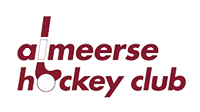
Almeerse Hockey Club
De oprichting:
De Almeerse Hockey Club is opgericht op 23 oktober 1979 en sindsdien gestaag gegroeid, zowel in aantallen leden als qua prestaties. De club telt ruim 1350 leden en behoort hiermee tot de grootste sportverenigingen van Almere. We streven naar een succesvolle combinatie van top-, prestatie- en breedtesport. Wekelijks trainen en spelen 14 seniorenteams en 93 jeugdteams op de Almeerse velden.
De prestaties van onze teams spreken voor zich de laatste jaren. De club gaat uit van eigen kracht en leidt onze spelers zelf op. Door te investeren in de kwaliteit van onze trainers en begeleiders, de bijdrage van de vele vrijwilligers en ouders en een fantastische accommodatie met vier watervelden en drie zandvelden is de Almeerse een unieke plek in onze jonge stad om met plezier te hockeyen.
De Almeerse is een club voor iedereen. Voor topsporters, prestatie spelers en breedte sporters. Ons uitgangspunt is hockey, waarbij iedereen kan presteren op zijn of haar niveau.
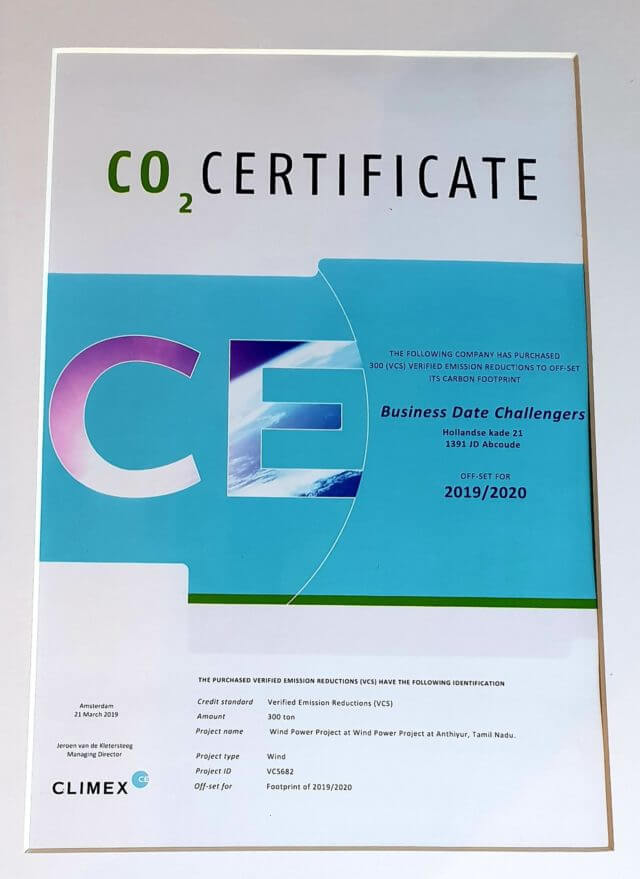
BDC CO2 certificaat
Business Data Challengers voert een actief beleid voor een CO2-neutraal wagenpark. Met duurzame mobiliteit leveren wij een bijdrage aan een schonere wereld.
Business Data Challengers is geheel CO2-neutraal, wij compenseren onze CO2-uitstoot. Daarnaast stimuleren wij het gebruik van het openbaar vervoer en werken wij vanuit regionale teams om het aantal autokilometers te beperken.
Wij verduurzamen onze bedrijfsvoering continu en stimuleren onze partners om ons voorbeeld te volgen. Met als uiteindelijk resultaat een positieve impact op onze leefomgeving.
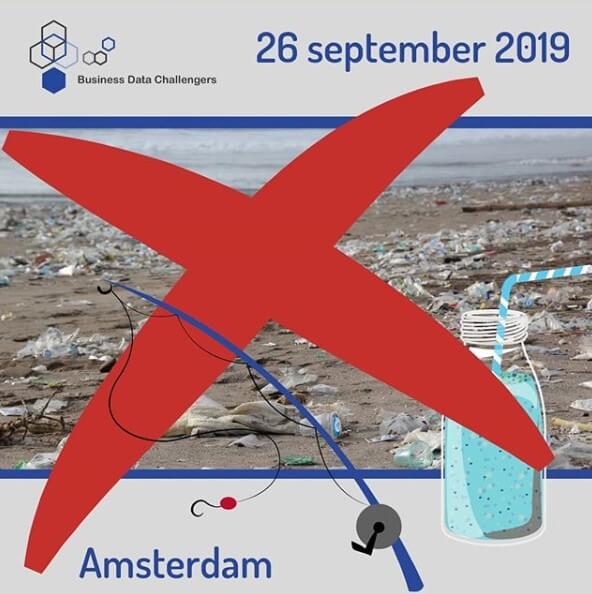
Plastic fishing
Bij Business Data Challengers zijn we ons bewust van het grote probleem met plastic afval.
Wij gaan ook deze Challenge aan. Op 26 september 2019 hebben we plastic opgevist uit de Amsterdamse grachten. Maar onze Business Data Challengers maken bijvoorbeeld ook gebruik van duurzame drinkflessen in plaats van single-use plastic bekers.
We leveren graag een actieve bijdrage, onze drinkflessen en het vissen naar plastic in Amsterdam zijn daar voorbeelden van.
Ook #teamwork!

IONIQA
BDC ontwikkelt de samenwerking met IONIQA.IONIQA recyclet alle soorten PET, zelfs gekleurd PET. Dit was tot nu toe niet mogelijk, de technologie van IONIQA is echt baanbrekend. Maar er is positiever nieuws. De pure grondstof die geproduceerd wordt is identiek aan de uit olie geproduceerde kunststoffen; zelfs geschikt voor voedselverpakkingen.Hoe? Simpel gezegd, de methode die we gebruiken heet depolymerisatie.De kunststof, ook wel polymeer genoemd, wordt ondergedompeld in een oplossing, zoals water of glycol. De moleculaire structuur van het polymeer, dat uit identieke eenheden (de monomeren) bestaat, begint dan langzaam op te lossen. Met de grondstof die we oogsten, produceren we nieuwe, heldere PET-flessen die voedselveilig zijn.
